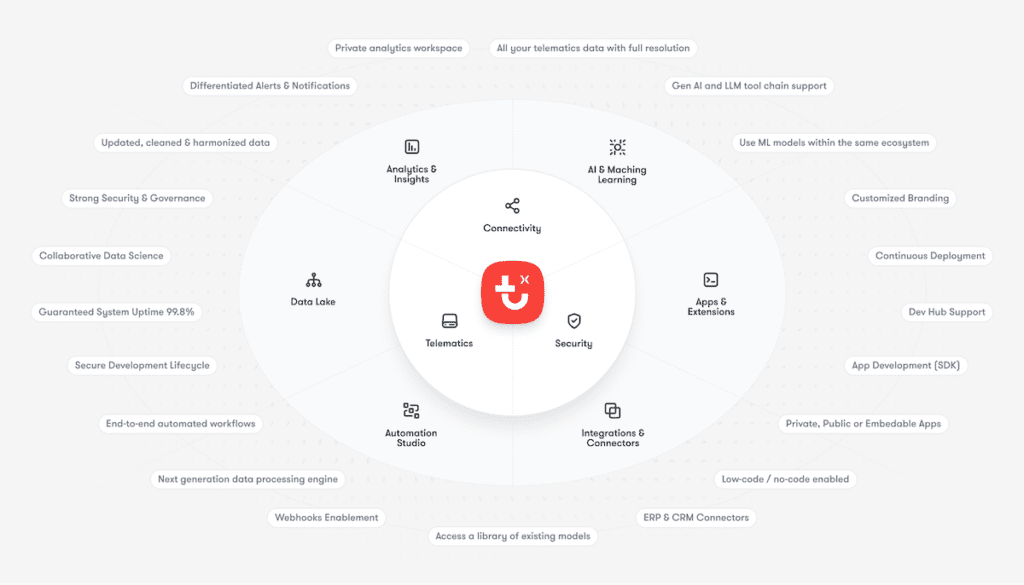

Caring is sharing. That’s something we like to tell our kids and as a fundamental tenet for raising a well rounded human being, it’s pretty sound. It’s also a basic component of data transparency and building the bricks — one by one — that foster a culture of trust and ultimately deliver the connectivity to construction that create the conditions for a better, more efficient industry.
But, it’s easier said than done. Building such a culture is a process and frankly, giving up even a bit of your data can feel like a big call. It’s not for nothing that data protection has become such a huge issue over the last 10-15 years in the digital environment and there is a whole raft of regulation out there giving consumers and businesses rules and guidance in this area.
In the US, the American Data Privacy and Protection Act established important consumer rights although it has as of yet only been adopted by 20 federal states. In Europe, a similar process started even earlier with the EU’s General Data Protection Rules.
The EU has also since gone on to introduce rules and guidance across industries including construction. The EU Data Act governing data in business, for example, came into force on January 1, 2024, significantly changing what and when data should be made available to customers. The law, which will become applicable in September 2025, has caused some consternation among OEMs in particular which I’ve previously acknowledged as legitimate, although I don’t believe it’s quite as concerning as perhaps feared.
But this anxiety towards who has control over data is also emerging as one of the biggest hurdles holding back businesses from fully embracing the transformation that is in play. That transition has found its manifestation in Industry Cloud Platforms — cloud computing solutions specifically designed to meet the needs of a particular industry or sector built on top of the public Cloud. Like with the EU Data Act, their concerns towards ICPs are understandable but again, in my view, outweighed significantly by the benefits that will result.

Now, let’s be transparent here. We at Trackunit have effectively evolved towards becoming an ICP for the construction industry specifically in the niche area of the off-highway segment, with the launch last month of our Operating Data Platform IrisX. That will see IrisX sit within an overall IT and software architecture of ICPs evolving and developing into various specialties. To put it another way, we have skin in the game.
But armed with the knowledge that companies are naturally proprietary about their data and understanding that this is an essential element to gaining their buy in, the development of the ecosystem is dependent on the structures they put in place on top of the platform to develop their protocols and guidelines over data exactly as they see fit.
‘This anxiety towards who has control over data is also emerging as one of the biggest hurdles holding back businesses from fully embracing the business transformation that is already in play and which has found its manifestation in Industry Cloud Platforms.’
An ICP such as this is powered by the Large Language Models — effectively AI-generated algorithms that can perform a variety of natural language processing tasks that turn data into insight. Constantly evolving and improving, they use Time Data Series data to effectively put together a jigsaw that is ultimately actionable and simple to understand.
And that’s the starting point for any user. Less a blank canvas and more of a supporting framework, each user can then task their data scientists to adapt the LLM literally before the ink is dry on any agreement and start the work of shaping it according to their data requirements. That means creating its own micro-environment that is fully classified, fully private, fully isolated and which it can track on its Enterprise Resource Planning system.

So take any large OEM as an example. It can use its parts data and its customer data to augment and improve the LLMs, building applications that leverage the machine data, opening up and identifying new business opportunities while at the same time maintaining control of what it shares and what it keeps under wraps.
This matters because quite rightly, OEMs, Rentals and Contractors are all to varying degrees obsessed with safeguarding their intellectual property, data and innovation on these evolving ICPs from getting stolen, misused or even commercialized by third parties without their knowledge. That concern could also just as easily apply to the ICP itself.
But a solid, trustworthy and secure ICP will guarantee to its ecosystem of users that they will be able to build the security that separates their micro-environment from the ICP and completely bridges off data it does not want to share from the data it can release to gain the business efficiencies.
Apple CEO Tim Cook has long pushed the privacy argument and in June 2024, the iPhone leader unveiled Apple Intelligence allowing customers to access their information in a completely private and secure way to help users do the things that matter most to them.
‘OEMs, Rentals and Contractors are all to varying degrees obsessed with safeguarding their intellectual property, data and innovation on these evolving ICPs from getting stolen, misused or even commercialized by third parties without their knowledge.’
It’s an indication of not only what will come but what is already happening. The titans of tech are already devoting significant resource to privacy and this will inevitably filter into ICP methodology.

In construction, for example, privacy will cover not just the data that any given company tracks in its machines and fleets, but also any data it inserts on top of tracking this data. And if ICPs don’t cover this fundamental aspect of privacy validated by the applicable certifications — in our case ISO 27001 — they could be putting their whole business model at risk.
What this really comes down to is people getting comfortable around this. In other words, a process of trust building. Just as it has always been. And that puts the onus on the ICP to give fleet managers and other users surety on the credibility of the data, allays concerns over who can access the data and demonstrates the business case for sharing data that is appropriate to unlocking new business value in the ICP environment.
Because the business case is so strong, I believe it will happen. And it’s on the ICPs to show they can meet user requirements on data privacy. If they can’t do that, a better version will come along that does.
This is part of a series of articles on the emergence of ICPs and what it means for the new business transformation. Read here what Søren had to say about‘the pace of learning’ earlier this year.
